
Alfred Elton van Vogt was a Canadian-born American science fiction writer. His fragmented, bizarre narrative style influenced later science fiction writers, notably Philip K. Dick. He was one of the most popular and influential practitioners of science fiction in the mid-twentieth century, the genre's so-called Golden Age, and one of the most complex. The Science Fiction Writers of America named him their 14th Grand Master in 1995.
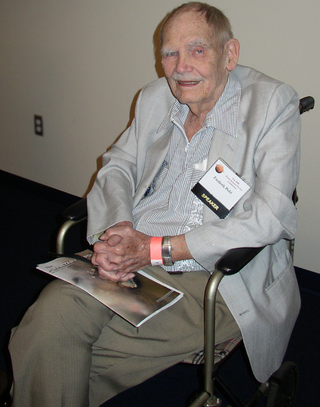
Frederik George Pohl Jr. was an American science-fiction writer, editor, and fan, with a career spanning nearly 75 years—from his first published work, the 1937 poem "Elegy to a Dead Satellite: Luna", to the 2011 novel All the Lives He Led.

Michael John Moorcock is an English writer, particularly of science fiction and fantasy, who has published a number of well-received literary novels as well as comic thrillers, graphic novels and non-fiction. He has worked as an editor and is also a successful musician. He is best known for his novels about the character Elric of Melniboné, which were a seminal influence on the field of fantasy in the 1960s and 1970s.

A short story is a piece of prose fiction. It can typically be read in a single sitting and focuses on a self-contained incident or series of linked incidents, with the intent of evoking a single effect or mood. The short story is one of the oldest types of literature and has existed in the form of legends, mythic tales, folk tales, fairy tales, tall tales, fables, and anecdotes in various ancient communities around the world. The modern short story developed in the early 19th century.

Michael John Harrison, known for publication purposes primarily as M. John Harrison, is an English author and literary critic. His work includes the Viriconium sequence of novels and short stories (1971–1984), Climbers (1989), and the Kefahuchi Tract trilogy, which consists of Light (2002), Nova Swing (2006) and Empty Space (2012).

Eric Frank Russell was a British writer best known for his science fiction novels and short stories. Much of his work was first published in the United States, in John W. Campbell's Astounding Science Fiction and other pulp magazines. Russell also wrote horror fiction for Weird Tales and non-fiction articles on Fortean topics. Up to 1955 several of his stories were published under pseudonyms, at least Duncan H. Munro and Niall(e) Wilde.
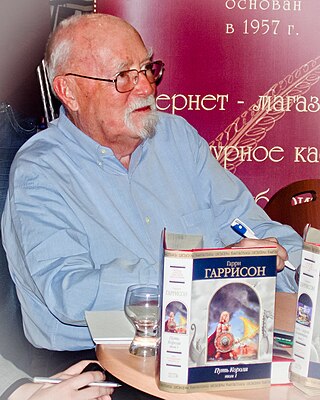
Harry Max Harrison was an American science fiction author, known mostly for his character The Stainless Steel Rat and for his novel Make Room! Make Room! (1966). The latter was the rough basis for the motion picture Soylent Green (1973). Long resident in both Ireland and the United Kingdom, Harrison was involved in the foundation of the Irish Science Fiction Association, and was, with Brian Aldiss, co-president of the Birmingham Science Fiction Group.
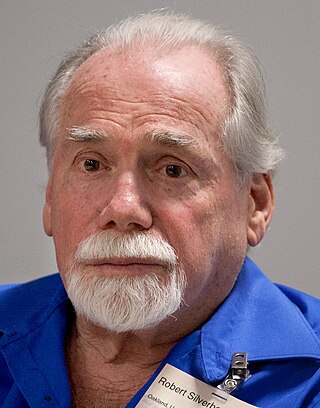
Robert Silverberg is a prolific American science fiction author and editor. He is a multiple winner of both Hugo and Nebula Awards, a member of the Science Fiction and Fantasy Hall of Fame, and a Grand Master of SF since 2004.

Louis Dearborn L'Amour was an American novelist and short story writer. His books consisted primarily of Western novels, though he called his work "frontier stories". His most widely known Western fiction works include Last of the Breed, Hondo, Shalako, and the Sackett series. L'Amour also wrote historical fiction, science fiction, non-fiction (Frontier), and poetry and short-story collections. Many of his stories were made into films. His books remain popular and most have gone through multiple printings. At the time of his death, almost all of his 105 existing works were still in print, and he was "one of the world's most popular writers".
Barry Nathaniel Malzberg is an American writer and editor, most often of science fiction and fantasy.
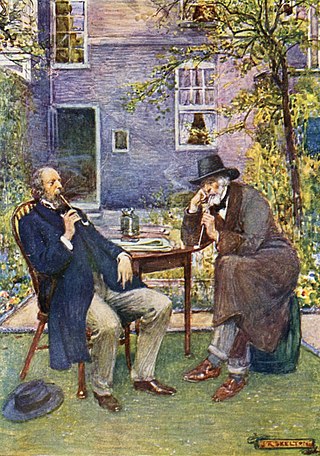
Victorian literature is English literature during the reign of Queen Victoria (1837–1901). The 19th century is considered by some the Golden Age of English Literature, especially for British novels. In the Victorian era, the novel became the leading literary genre in English. English writing from this era reflects the major transformations in most aspects of English life, from scientific, economic, and technological advances to changes in class structures and the role of religion in society. The number of new novels published each year increased from 100 at the start of the period to 1000 by the end of it. Famous novelists from this period include Charles Dickens, William Makepeace Thackeray, the three Brontë sisters, Elizabeth Gaskell, George Eliot, Thomas Hardy, and Rudyard Kipling.
Edgar Pangborn was an American writer of mystery, historical, and science fiction.

Harold Albert Lamb was an American writer, novelist, historian, and screenwriter. In both his fiction and nonfiction work, Lamb gravitated toward subjects related to Asia and the Middle East.

The literary genre of science fiction is diverse, and its exact definition remains a contested question among both scholars and devotees. This lack of consensus is reflected in debates about the genre's history, particularly over determining its exact origins. There are two broad camps of thought, one that identifies the genre's roots in early fantastical works such as the Sumerian Epic of Gilgamesh. A second approach argues that science fiction only became possible sometime between the 17th and early 19th centuries, following the scientific revolution and major discoveries in astronomy, physics, and mathematics.

Gail Godwin is an American novelist and short story writer. Godwin has written 14 novels, two short story collections, three non-fiction books, and ten libretti. Her primary literary accomplishments are her novels, which have included five best-sellers and three finalists for the National Book Award. Most of her books are realistic fiction novels that follow a character's psychological and intellectual development, often based on themes taken from Godwin's own life.

Hualing Nieh Engle, née Nieh Hua-ling, is a Chinese novelist, fiction writer, and poet. She is a professor emerita at the University of Iowa.

Samuel R. "Chip" Delany is an American writer and literary critic. His work includes fiction, memoir, criticism, and essays on science fiction, literature, sexuality, and society. His fiction includes Babel-17, The Einstein Intersection ; Hogg, Nova, Dhalgren, the Return to Nevèrÿon series, and Through the Valley of the Nest of Spiders. His nonfiction includes Times Square Red, Times Square Blue, About Writing, and eight books of essays. He has won four Nebula awards and two Hugo Awards, and he was inducted into the Science Fiction and Fantasy Hall of Fame in 2002.
Wajdi al-Ahdal is a Yemeni novelist, short story writer and playwright. Laureate of the International Prize for Arabic Fiction (IPAF) in 2008, is known for his contemporary literary style and sometimes socially critical works, some of which have been censored in Yemen. Until 2019, he has published five novels, four collections of short stories, a play and a film screenplay.
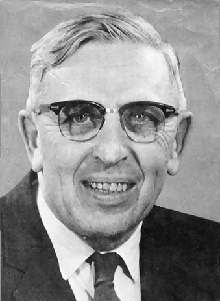
Clifford Donald Simak was an American science fiction writer. He won three Hugo Awards and one Nebula Award. The Science Fiction Writers of America made him its third SFWA Grand Master, and the Horror Writers Association made him one of three inaugural winners of the Bram Stoker Award for Lifetime Achievement. He is associated with the pastoral science fiction subgenre.

The literary tradition of Birmingham originally grew out of the culture of religious puritanism that developed in the town in the 16th and 17th centuries. Birmingham's location away from established centres of power, its dynamic merchant-based economy and its weak aristocracy gave it a reputation as a place where loyalty to the established power structures of church and feudal state were weak, and saw it emerge as a haven for free-thinkers and radicals, encouraging the birth of a vibrant culture of writing, printing and publishing.